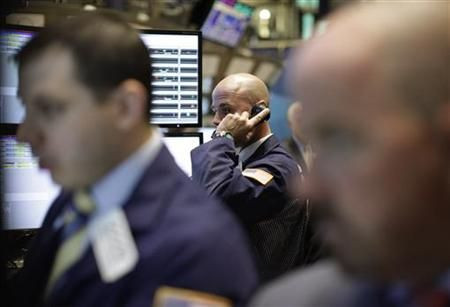Major Markets in Liquidation, S&P 500 May Hit 1,010

Major markets around the world are in liquidation mode, meaning investors long risk-assets are still trying to sell out of their positions, Craig Ferguson, a currency hedge fund manager at Antipodean Capital Management in Melbourne, told Bloomberg TV.
He said these markets will likely fall 10 to 15 percent from current levels. He thinks the S&P 500 Index will eventually fall somewhere near 1,010, which happens to be the 2010 low. He forecast oil to fall to around $70 per barrel.
Whether or not this liquidation move turns into a sustained bear market depends on how the economy performs, said Ferguson. If the economy does poorly, a sustained bear market will likely materialize.
On Thursday, U.S. stocks closed mixed, with the S&P 500 Index closing up 9 points to end at 1,160, the Dow Jones Industrial Average climbing 143 points to close at 1,153, but the Nasdaq Composite declining 10 points to finish at 2,480.
Thursday's relatively upbeat performance was sparked by better than expected U.S. economic data and positive news out of Europe.
However, in a downtrend, hope and rallies are short-lived and quickly dashed when reality sinks in, Mikio Kumada, global strategist at LGT Capital Management in Singapore, told Bloomberg TV.
Many analysts and investors, for example, believe the overriding reality is that there is no easy solution for Greece and the ultimate outcome will be quite painful, despite any temporary bailout solution authorities may come up with.
Kumada, who used the word bear market to describe the current downtrend, said the best case scenario is for the market to bounce along the bottom for a while.
E-mail Hao Li at hao.li@ibtimes.com.
For more useful global markets information, visit ibtimes.com/sections/global-markets.
© Copyright IBTimes 2024. All rights reserved.





















